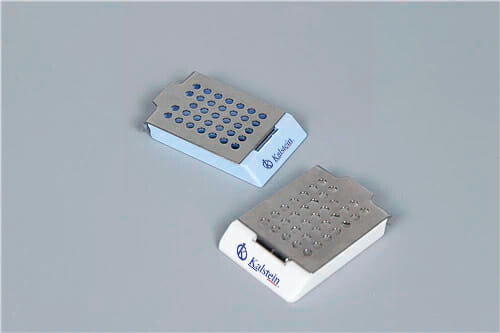Quantitative reagent analysis in hematology and biochemistry is a key tool to help physicians predict, diagnose and treat disease; these tests are performed to determine the levels of elements and compounds in living organisms, such as blood.
The purpose of these tests is to allow medical personnel to have a better understanding of a patient’s health and physical condition; the methods used in hematology and biochemistry may be slightly different.
Benefits of performing quantitative blood tests with the relevant reagents to generate accurate results
Hematology focuses primarily on measuring the elements present in the blood, such as red blood cells, white blood cells, red cells, platelets and other blood components.
Biochemistry, on the other hand, examines the different compounds circulating in the body, such as nutrients, hormones and cells.
Performing a quantitative reagent analysis in hematology requires good equipment and this usually includes a microscope with a field extension assistant, some chemical reagents and antigens in test tubes to obtain accurate results.
Characteristics of equipment used in laboratories to perform hematology and biochemistry-based analyses
In addition, hematology laboratories also use automated counters to obtain more data, such as the distribution of different blood cells; these counters usually have a computer connected to read and process the results immediately.
Quantitative analyses in biochemistry also require good equipment, including chemical reagents, and special coatings to prevent evaporation of the reagents; in addition, some laboratories have a microscope with field extension, automated counters and liquid chromatographs to measure the levels of different compounds.
Other equipment commonly used in this area includes mass spectrometry and atomic absorption spectrometry
Although the methods involved may vary, the basic procedures for performing quantitative reagent analyses in hematology and biochemistry are usually quite similar.
These procedures generally include pre-preparation in which samples are collected and prepared for analysis; the analysis itself; and processing of the data collected; pre-preparation involves sample preparation through collection, centrifugation, testing, labeling, storage, and proper transport.
Reagent analysis is also used for the control of medications given to patients
On the other hand; analysis rarely begins until all samples have been properly prepared; quantitative reagent analysis is also used to monitor drug levels in the body.
This is done by collecting a patient’s blood samples before and after administration of a drug to determine the appropriate drug levels.
The equipment needed to perform these tests may vary depending on the specific test being performed, but the basic procedures are generally the same
This can help adjust a patient’s medication regimen safely and effectively, without risking intoxication. Ultimately, quantitative reagent analysis in hematology and biochemistry plays an important role in modern medicine.
In conclusion; these analyses help physicians to have a better understanding of their patient’s health and physical condition, and also serve to adjust treatment in a safe way.
Where can specialists get good quality reagents for their laboratories at the best price
In Kalstein as a Manufacturer company you can get the best reagents, just visit our website HERE to enjoy great deals and unbeatable prices, because we are MANUFACTURERS and we can guarantee your effective purchase. In the following link you can choose from the variety of reagents that our prestigious company HERE


